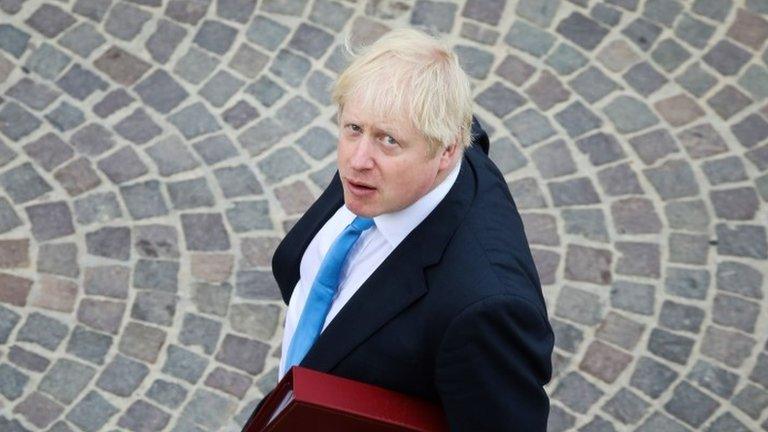'No breakthroughs expected from Johnson meeting' - Varadkar
- Published
- comments
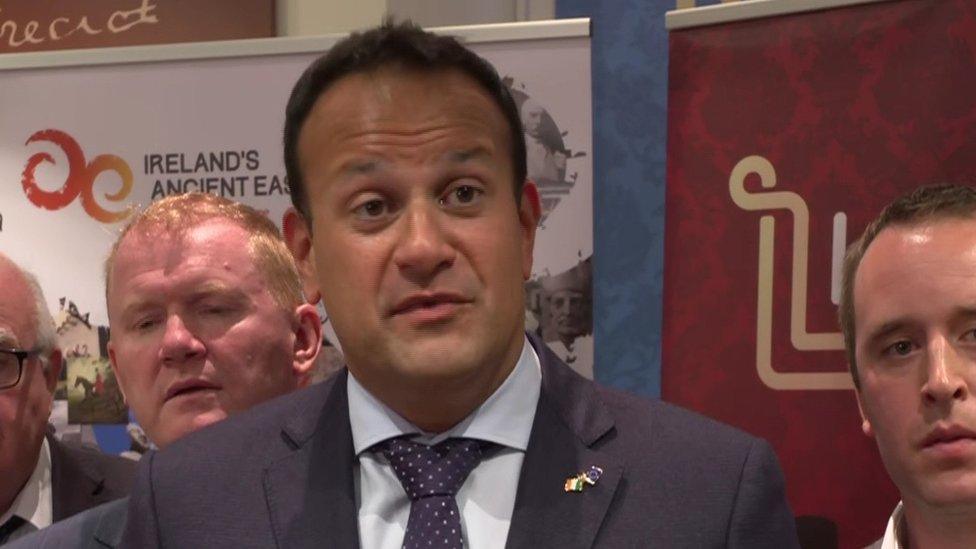
Irish PM Leo Varadkar has said he "does not expect any breakthroughs" in his meeting with Boris Johnson on Monday.
Speaking at a press conference in Waterford, he said that the meeting is "an opportunity to establish a personal relationship".
On Thursday, Mr Varadkar said that some checks on goods and live animals may need to take place near the Irish border in a no-deal Brexit
Checks would take place at ports, airports and firms, he said.
UK PM Boris Johnson has said he would "rather be dead in a ditch than delay Brexit", which is set for 31 October.
Leo Varadkar says there may be some checks 'near the border' in a no-deal
Speaking on Friday, Mr Varadkar said: "It's an opportunity for us to talk about each other's positions in relation to the European Union and the withdrawal agreement, to explore where there might be common ground.
"Also as well to talk about Northern Ireland because separate from the major issue of Brexit there is the ongoing suspension of the Assembly and the executive in Northern Ireland."
'No backstop alternative'
Mr Varadkar has said he would continue efforts to avoid a no-deal, but would not do so "at any cost", adding that the EU had still not received any workable alternative to the backstop from the UK.
"I do fear it, but I am prepared for it," he told business leaders in Dublin on Thursday night.
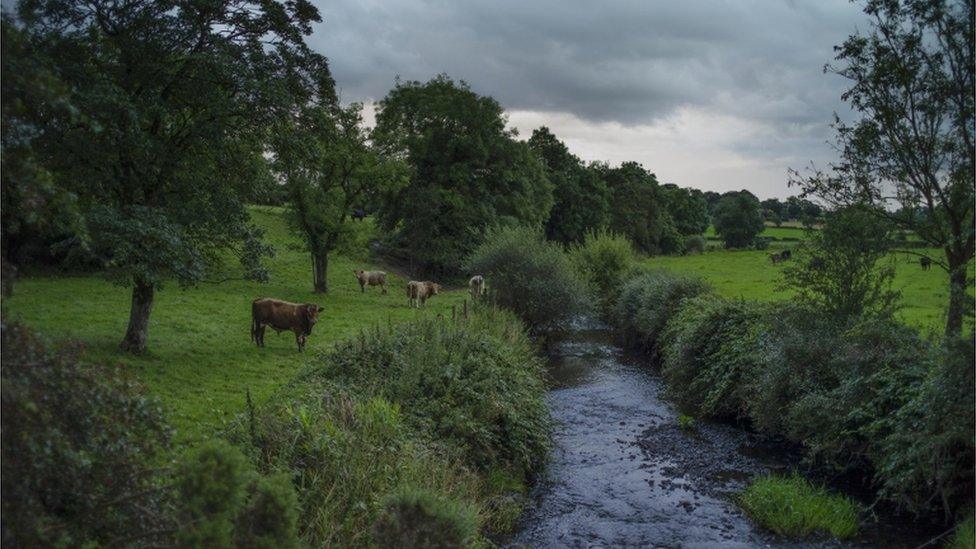
Senator Marshall said the Irish government will be mandated to protect the integrity of the border
The backstop is a position of last resort, to maintain a seamless border on the island of Ireland.
It would keep the UK in a very close relationship with the EU until a trade deal permanently avoiding the need for checks is agreed.
It will not apply if the UK leaves without a deal in October.

Analysis:
By John Campbell, BBC News NI economics and business editor
We know that the responsibility of the Irish government as a member of the EU would be to collect customs duties and to protect the integrity of the single market.
The question is how the Republic's government would fulfil those responsibilities.
This week we have seen Leo Varadkar and Simon Coveney getting closer to saying 'listen folks, some of this stuff would have to happen, probably close to the border'.
The big one is around food and agriculture.
Food products coming into the EU from a non-member state must go through what is called a border inspection post, which must be in the immediate vicinity of the point of entry.
The discussion is around what is the immediate vicinity of the point of entry.
Is it a mile from the border? Is it 10 miles?
Where is it?

Customs declarations
The taoiseach said tariffs would apply to "goods imported into Ireland from the United Kingdom and vice versa".
"The tariff schedules are already known," he said.
"You will need to be registered as an importer-exporter and you will need to make customs declarations."
Confused by Brexit jargon? Reality Check unpacks the basics.
Mr Varadkar said that in the event of no-deal, the common travel area would remain in place.
'Extremely unhelpful'
Sinn Féin President Mary Lou McDonald called Mr Varadkar's comments "extremely unhelpful" and said checks would "damage border communities, harm the economy and undermine the architecture of the peace process".
"These are fundamental issues that will have a massive impact on our country for generations to come and it is the job of an taoiseach and our European partners to prevent this disastrous scenario from emerging," she added.
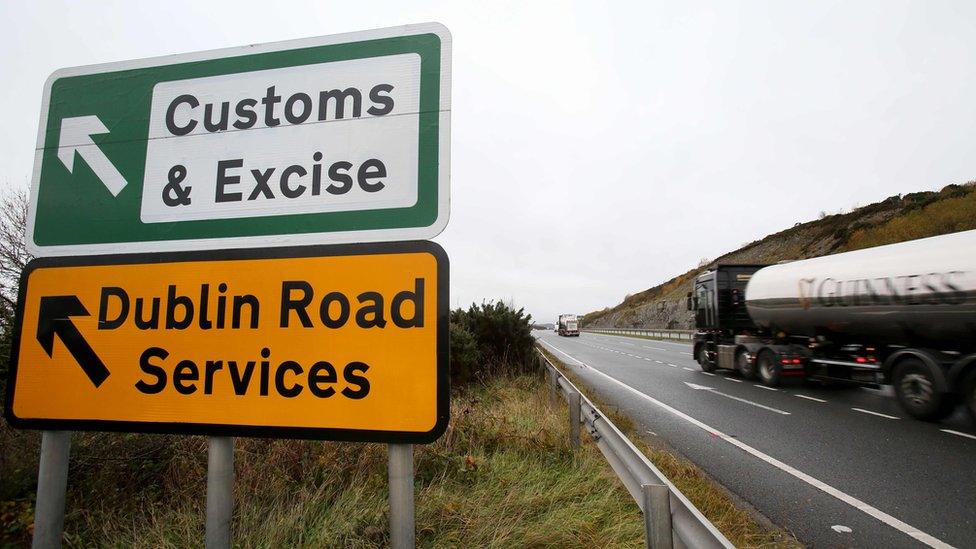
Checks in the UK
Meanwhile, the Freight Transport Association in Northern Ireland has said that any post-Brexit checks near the border in the Republic are likely to be matched by similar checks in the UK.
Seamus Leheny, policy manager for the Freight Transport Association, said checks would "probably have to be reflected on the northern side of the border".
The government has always insisted it would not be putting up any new infrastructure near the border.
"They might say that now, but that's not a sustainable approach to managing the Irish border because if you don't have controls in place, how does the UK government control what is entering into the GB market," said Mr Leheny.
'Look at the facts'
Despite the warning, DUP leader Arlene Foster has insisted there will be no new infrastructure at the border in Northern Ireland, even if the Republic introduces checks after Brexit.
"There's been a lot of speculation up until now," she said.
"What we need to do is look at the facts and the facts are that the government has said very clearly that they will not be putting infrastructure at the border."
Asked about how the UK was going to control what came across the border into Northern Ireland, she said "alternative arrangements" could be put in place, but not infrastructure.
Meanwhile, Irish broadcaster RTÉ reports the UK has proposed stripping all elements of the backstop out of the withdrawal agreement., external
The only elements of the agreement left is a commitment to the all-island electricity market, the Common Travel Area and the rights of EU citizens, it said.
The UK has instead proposed that both sides would make a commitment to no hard border, but only after Britain had left the European Union.
- Published13 December 2020
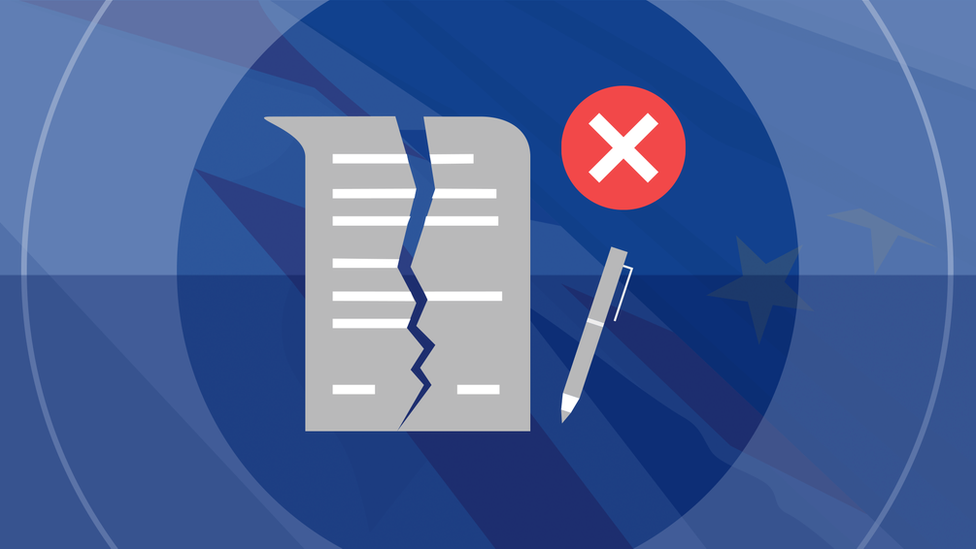
- Published6 August 2019
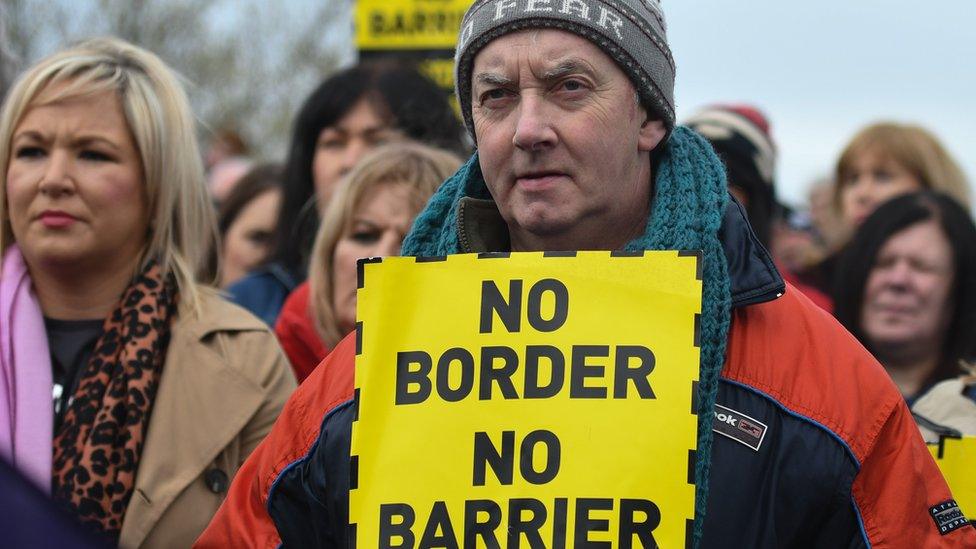
- Published3 September 2019
